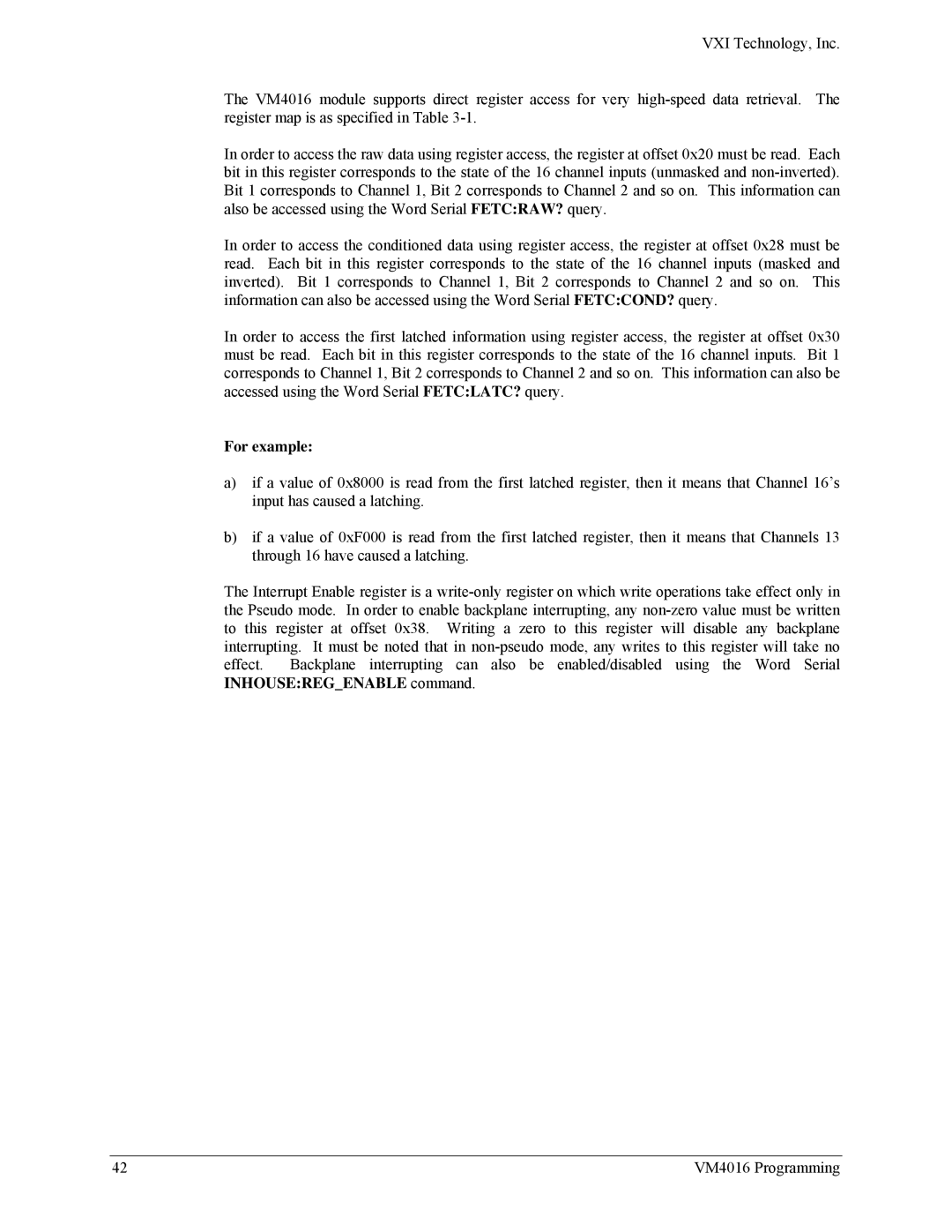VXI Technology, Inc.
The VM4016 module supports direct register access for very
In order to access the raw data using register access, the register at offset 0x20 must be read. Each bit in this register corresponds to the state of the 16 channel inputs (unmasked and
In order to access the conditioned data using register access, the register at offset 0x28 must be read. Each bit in this register corresponds to the state of the 16 channel inputs (masked and inverted). Bit 1 corresponds to Channel 1, Bit 2 corresponds to Channel 2 and so on. This information can also be accessed using the Word Serial FETC:COND? query.
In order to access the first latched information using register access, the register at offset 0x30 must be read. Each bit in this register corresponds to the state of the 16 channel inputs. Bit 1 corresponds to Channel 1, Bit 2 corresponds to Channel 2 and so on. This information can also be accessed using the Word Serial FETC:LATC? query.
For example:
a)if a value of 0x8000 is read from the first latched register, then it means that Channel 16’s input has caused a latching.
b)if a value of 0xF000 is read from the first latched register, then it means that Channels 13 through 16 have caused a latching.
The Interrupt Enable register is a
42 | VM4016 Programming |
